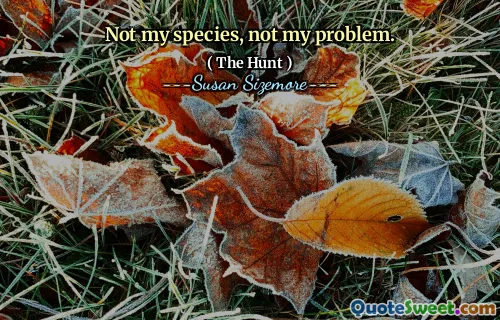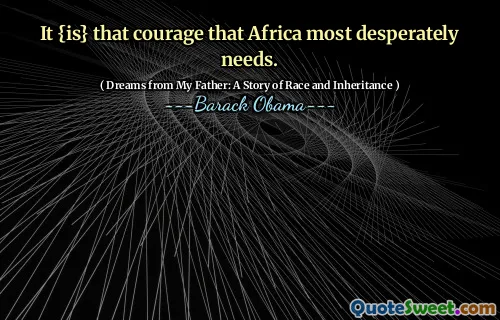
Not my species, not my problem.
This quote succinctly captures a stance of detachment or indifference that can permeate both individual and societal behavior. It echoes a mentality where responsibility is shirked by dismissing issues as outside one's concern, which can have profound implications. In the context of the book '(The Hunt)' by Susan Sizemore, such an attitude might reflect a character’s reluctance to involve themselves in conflicts or problems that don't directly affect their immediate interests. This perspective can serve as a defense mechanism, but it also raises questions about compassion and societal responsibility. When individuals adopt such a dismissive attitude, they contribute to a neglect of collective issues—be it environmental crises, social injustices, or interpersonal conflicts. It suggests that resolution requires empathy, understanding, and a willingness to engage, even with problems that seem distant or unrelated to personal identity. The danger lies in a worldview that considers problems as someone else's or someone else's responsibility; this can lead to social fragmentation and a lack of cohesive action needed to address complex, systemic issues. Conversely, confronting problems, even those that don't directly impact us, can foster community resilience and shared growth. The quote challenges us to reflect on our boundaries of responsibility and to consider whether such a detached outlook is sustainable or humane in a interconnected world. Ultimately, it prompts a deeper examination of empathy and the importance of collective effort in facing the world's numerous challenges.





